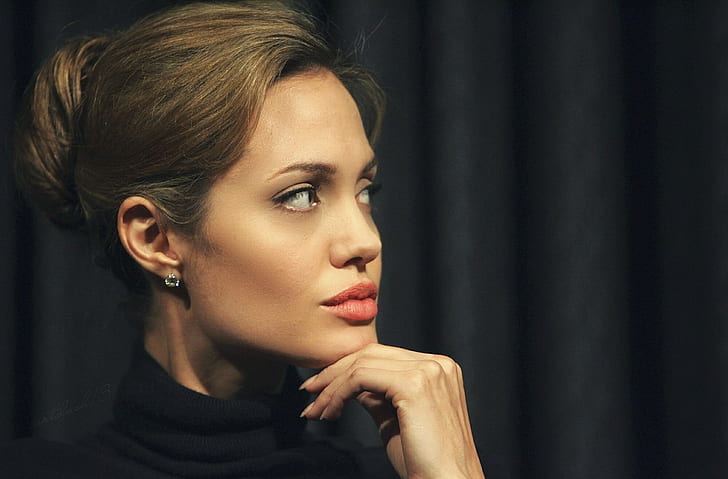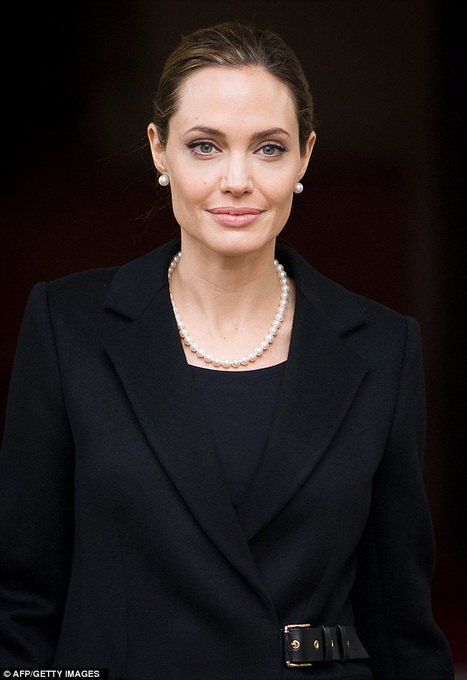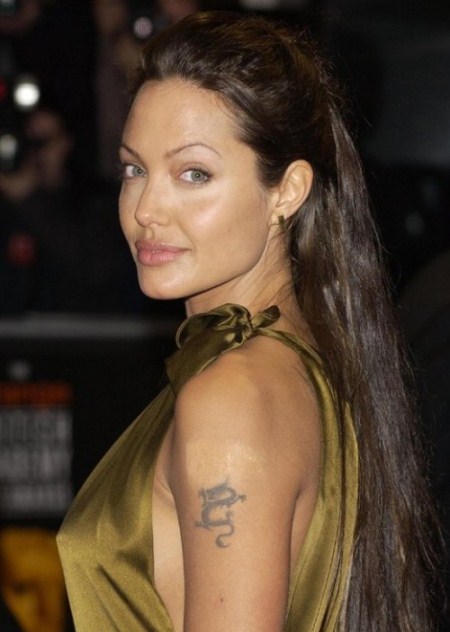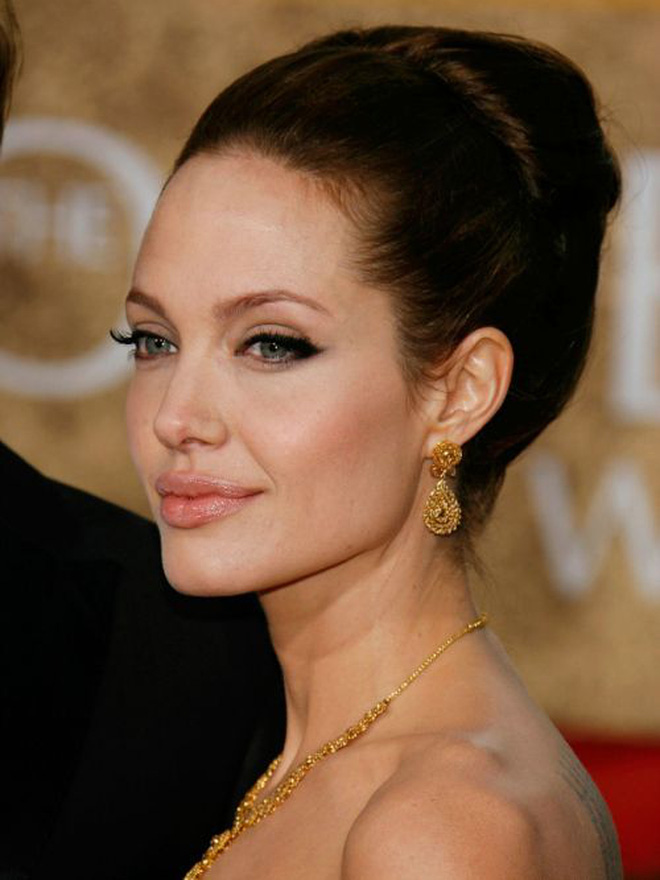The actress candidly discusses the reasons behind her divorce from Brad Pitt as being a matter of human rights, her experience in breaking free from Harvey Weinstein, and the valuable lessons she has learned from young activists. Jolie emphasizes the importance of speaking up despite attempts to silence them, as she interacts with inspiring young advocates.

Angelina Jolie is seated at a desk, exuding grace and beauty with her straight black hair and striking features. In a Zoom call with four young activists, they discuss pressing human rights issues amidst the troubling news of the Taliban’s advance in Afghanistan.
In a scene straight out of a movie, Jolie appears as a revered figure addressing the activists, but in reality, she is humbled by their work. The activists speak passionately about their efforts to raise awareness on various global issues, from the crisis in Syria to food poverty. Jolie listens intently, praising their dedication and admitting her own generation’s shortcomings.
She expresses gratitude for the activists’ impact on her children, acknowledges the gravity of their work, and urges them to take care of themselves amidst their tireless efforts. Jolie conveys her deep respect for the young activists, realizing that they are the true inspiration in the room.

The following night, Jolie and I are on a Zoom call, with the sound of children playing faintly in the background. Our conversation is constantly being interrupted by Dusty, her Rottweiler, who seems to think he’s a lion with his ferocious barks. It’s been a particularly grim day for human rights as the Taliban has taken over Kabul and ousted the Afghan government. Jolie mentions that the only glimmer of hope she has comes from the young people we spoke to yesterday. “They discuss these issues with a sense of urgency and a moral compass that surpasses any politician, diplomat, or NGO I’ve encountered.”

She cannot get Muhammad Najem, a 19-year-old who bravely exposed the Syrian regime’s atrocities in Eastern Ghouta, out of her mind. Following the tragic loss of his father in an airstrike, Muhammad and his brother would film the devastation caused by daily bombings from their rooftop to shed light on the suffering of survivors. Muhammad and his family eventually became targets of the government and sought refuge in Turkey, where he shared his harrowing story. What stood out about Muhammad was not just his courage, but also his infectious smile and zest for life despite witnessing unimaginable horrors. Recently, Jolie connected with Muhammad and a young activist fighting against period poverty over Zoom. Jolie was impressed by Muhammad’s empathy towards the girl’s cause, noting that his understanding surpassed that of most men she had encountered. Both Jolie and the article’s writer pondered the idea that cloning Muhammad may hold the key to achieving world peace. “He truly embodies the qualities of an enlightened individual!” Jolie exclaimed. And in apparent agreement, Dusty let out a roaring “Grrrrrrrrr!”

During my time in the United States with my own kids, I had a realization about human rights and children’s rights. Angelina Jolie has been a dedicated advocate for human rights for two decades, starting as a goodwill ambassador and later serving as a special envoy for the UN high commissioner for refugees. Through over 60 field missions to countries like Syria, Sierra Leone, Iraq, and Afghanistan, she has witnessed firsthand the struggles of people displaced by conflict and persecution.
Now, at the age of 46, Jolie has collaborated with child rights lawyer Geraldine Van Bueren QC and Amnesty International to create a book titled “Know Your Rights”. This guide for young people, inspired by the Clash song that is tattooed on Jolie’s back, outlines all the rights children are entitled to under the UN convention on the rights of the child. With input from young individuals who have successfully claimed their rights, the book provides valuable advice on how to navigate the system.
“Know Your Rights” covers a range of important topics in a conversational and easy-to-understand manner. From the right to life, dignity, and health, to issues of equality, non-discrimination, and freedom of expression, the book empowers young readers to understand and assert their rights. It also addresses the right to a safe environment, access to education, and protection from harm and violence.


